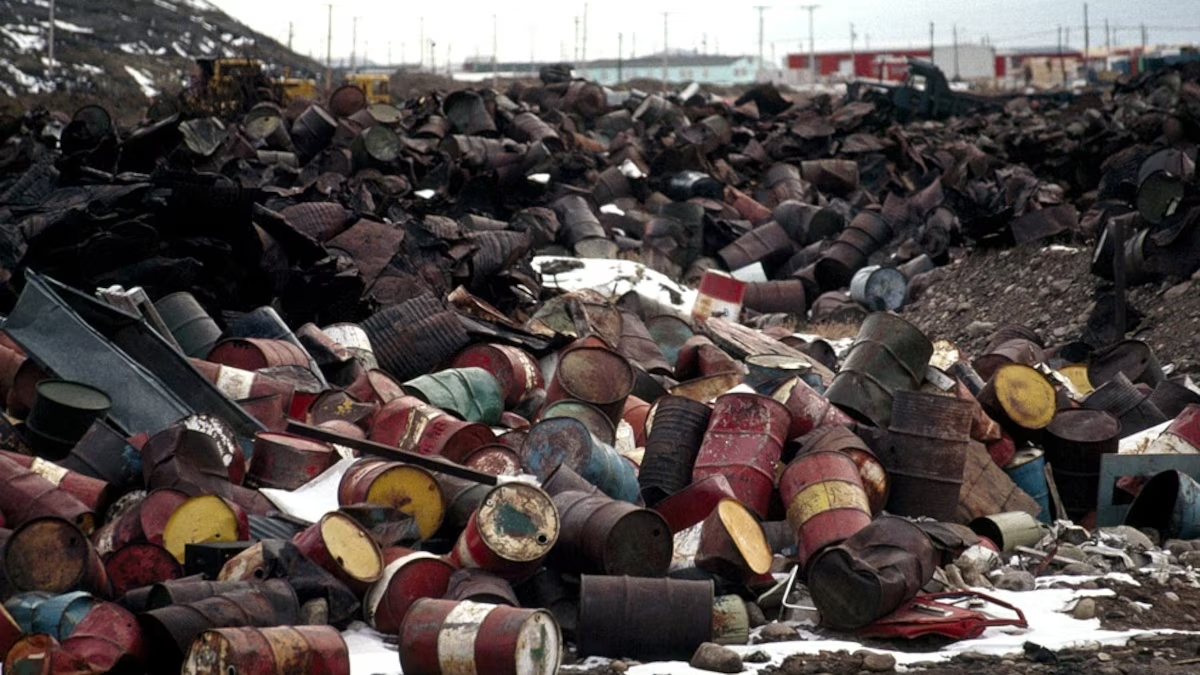
Toxic waste is a pressing environmental issue that poses significant risks to ecosystems and human health. Understanding the nature and impact of toxic waste is crucial for implementing effective mitigation strategies and promoting environmental sustainability. In this article, we will delve into 19 compelling facts about toxic waste, shedding light on its sources, effects, and the measures being taken to address this critical concern. From the origins of toxic waste to its long-term implications, this comprehensive exploration aims to raise awareness and foster a deeper understanding of the complex challenges associated with toxic waste management. Join us as we uncover the realities of toxic waste and explore the innovative approaches aimed at safeguarding our planet and its inhabitants from its detrimental effects.
Key Takeaways:
- Toxic waste, from industrial and technological activities, can harm the environment and human health if not handled properly. It’s crucial to raise awareness and work together to address this pressing issue.
- Collaboration and innovation are key in managing toxic waste. By embracing sustainable practices and educating the public, we can minimize its impact and build a healthier, more sustainable future.
Toxic Waste: A Looming Environmental Menace
Toxic waste is a pressing environmental issue that demands our attention. Here are 19 intriguing facts about toxic waste:
Toxic waste can take various forms, including liquids, gases, and solids.
Toxic waste encompasses a wide range of hazardous materials, from industrial byproducts to chemicals and radioactive substances.
Improper disposal of toxic waste can lead to severe environmental pollution.
When toxic waste is not handled and disposed of properly, it can contaminate soil, water, and air, posing significant risks to ecosystems and human health.
The production of toxic waste is a byproduct of industrial, agricultural, and technological activities.
Industries, agriculture, and technological processes generate substantial amounts of toxic waste, contributing to environmental degradation.
Toxic waste can persist in the environment for extended periods, causing long-term harm.
Some toxic substances can endure in the environment for years, exerting detrimental effects on ecosystems and human populations.
Exposure to toxic waste can lead to a myriad of health issues, including respiratory problems, neurological disorders, and cancer.
Individuals exposed to toxic waste may suffer from a range of health complications, underscoring the urgency of addressing this environmental hazard.
The mishandling of toxic waste has led to catastrophic environmental disasters in various parts of the world.
Instances of toxic waste mismanagement have resulted in devastating environmental catastrophes, leaving lasting impacts on affected regions.
The disposal of electronic waste, such as old computers and smartphones, contributes to the accumulation of toxic materials in landfills.
Electronic devices contain hazardous components that can leach into the environment if not disposed of properly, exacerbating the toxic waste predicament.
Developing countries often struggle with the management and disposal of toxic waste due to limited resources and infrastructure.
In many developing nations, the proper handling and disposal of toxic waste pose significant challenges, amplifying environmental and public health risks.
The illegal dumping of toxic waste is a pervasive issue, with criminal entities seeking to evade regulations and cut costs.
Illegal dumping of toxic waste presents a grave threat to the environment and public well-being, necessitating stringent enforcement measures.
The remediation of toxic waste sites demands substantial resources and specialized expertise.
Efforts to clean up and remediate areas contaminated by toxic waste necessitate significant investments in technology, manpower, and scientific knowledge.
The United Nations has established conventions and protocols to address the transboundary movement of toxic waste.
International agreements and protocols aim to regulate the cross-border transport and disposal of toxic waste, fostering global cooperation in managing this critical issue.
Innovative technologies are being developed to mitigate the impact of toxic waste on the environment.
Researchers and engineers are exploring advanced methods to treat and neutralize toxic waste, offering hope for sustainable solutions to this environmental challenge.
The management of toxic waste necessitates a comprehensive approach that integrates scientific, regulatory, and ethical considerations.
Addressing toxic waste demands a holistic strategy that encompasses scientific research, regulatory frameworks, and ethical principles to safeguard the environment and public health.
Public awareness and education play a pivotal role in fostering responsible practices for the handling and disposal of toxic waste.
Raising awareness and educating the public about the implications of toxic waste is crucial for promoting responsible behaviors and environmental stewardship.
The cleanup of toxic waste sites can revitalize ecosystems and communities, fostering environmental resilience and social well-being.
Efforts to remediate areas affected by toxic waste can yield significant ecological and societal benefits, underscoring the potential for positive change.
Collaboration between governments, industries, and civil society is essential for addressing the challenges posed by toxic waste.
Effective collaboration among diverse stakeholders is vital for developing and implementing strategies to manage toxic waste and mitigate its impact.
Sustainable practices and circular economy principles offer opportunities to minimize the generation of toxic waste and promote resource efficiency.
Embracing sustainable practices and circular economy principles can contribute to reducing the generation of toxic waste and advancing environmental sustainability.
The responsible management of toxic waste is integral to safeguarding the planet for current and future generations.
Prioritizing the responsible management of toxic waste is imperative for preserving the environment and ensuring the well-being of present and future generations.
Toxic waste poses a significant threat to the environment and human health, necessitating concerted efforts to address its impact and prevent further harm. By raising awareness, fostering innovation, and promoting responsible practices, we can work towards mitigating the challenges posed by toxic waste and building a more sustainable future for all.
Conclusion
In conclusion, toxic waste poses a significant threat to the environment, human health, and wildlife. It is crucial for individuals, industries, and governments to prioritize responsible waste management practices to minimize the generation and impact of toxic waste. By raising awareness, implementing stringent regulations, and investing in sustainable solutions, we can work towards a cleaner and safer future for our planet.
FAQs
What are the common sources of toxic waste?
Toxic waste can originate from various sources, including industrial processes, agricultural activities, healthcare facilities, and household products. These sources generate hazardous materials that require careful handling and disposal to prevent environmental contamination and health risks.
How can individuals contribute to reducing toxic waste?
Individuals can make a difference by practicing responsible waste disposal, recycling, and minimizing the use of toxic substances in their daily lives. By choosing eco-friendly products, properly disposing of hazardous materials, and supporting initiatives for waste reduction, everyone can play a part in mitigating the impact of toxic waste on the environment.
Toxic waste poses grave dangers, but fascinating stories and surprising facts await your discovery. Satisfy your curiosity about the colorfully named Toxic Waste Candy, or explore the unsung heroes working tirelessly in toxic waste removal. For a thrilling cinematic take on the topic, delve into the captivating world of The Toxic Avenger, a movie that blends horror, comedy, and environmental awareness. Each of these topics offers a unique perspective on the pervasive issue of toxic waste, providing both entertainment and enlightenment. Embark on a journey of discovery and uncover the many facets of this critical environmental challenge.
Was this page helpful?
Our commitment to delivering trustworthy and engaging content is at the heart of what we do. Each fact on our site is contributed by real users like you, bringing a wealth of diverse insights and information. To ensure the highest standards of accuracy and reliability, our dedicated editors meticulously review each submission. This process guarantees that the facts we share are not only fascinating but also credible. Trust in our commitment to quality and authenticity as you explore and learn with us.


